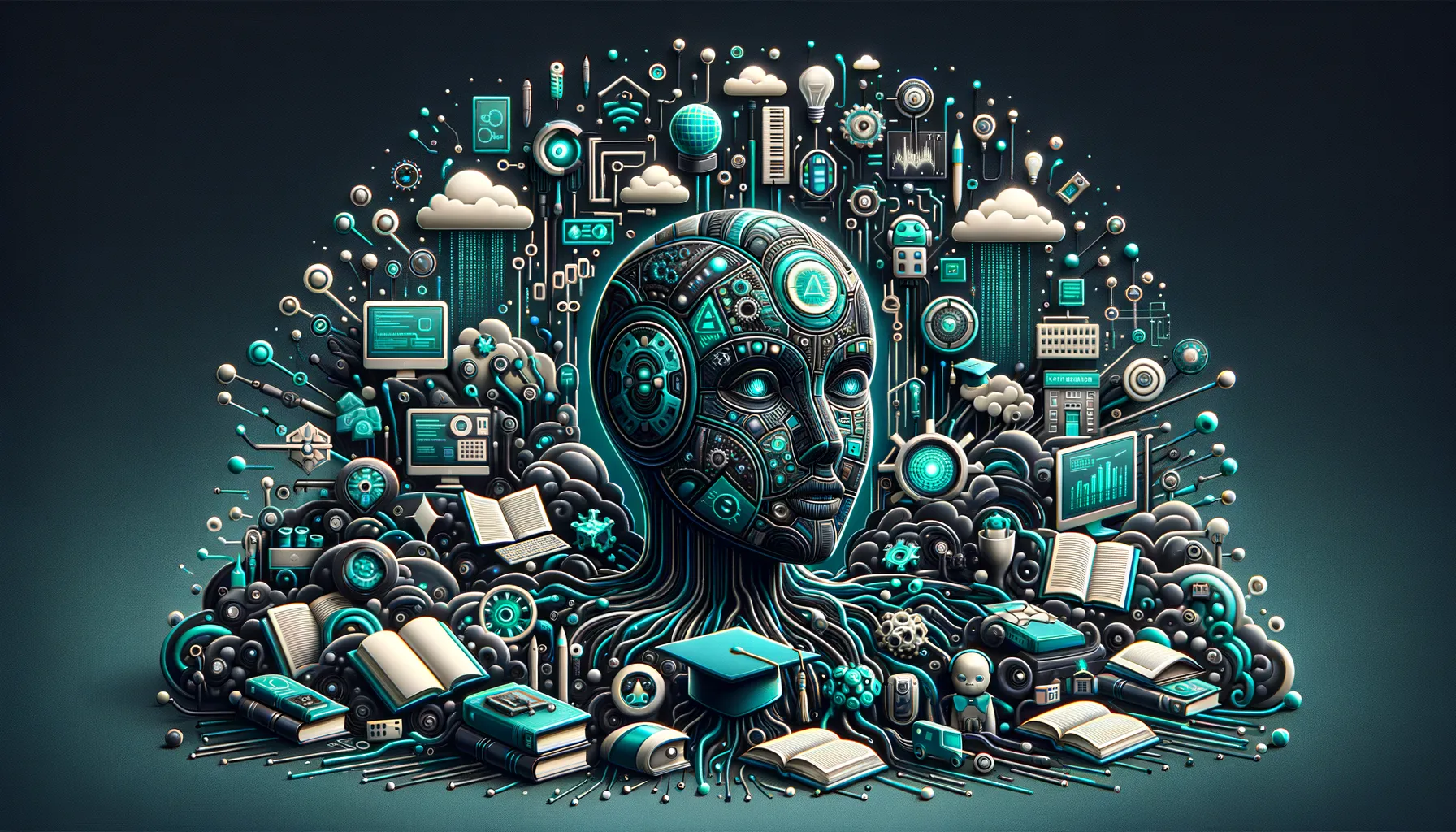Sunday 14 July 2024, 01:01 PM
How artificial intelligence is transforming the educational landscape
AI in education personalizes learning, automates administrative tasks, enhances accessibility, and provides insights for better teaching methods, but raises privacy and ethical concerns.
The Dawn of AI in Education
Artificial Intelligence (AI) has permeated numerous facets of our lives, from how we communicate to how we commute. However, its growing impact on the field of education is particularly transformative. AI is reshaping the educational landscape, presenting both opportunities and challenges. This blog post explores how AI is being integrated into education, what it offers, and the concerns it raises.
Personalized Learning Experiences
One of the most celebrated features of AI in education is its ability to personalize learning. Each student learns differently, at their own pace, with their own strengths and areas for improvement. AI can analyze the needs of individual students and adapt the educational material accordingly.
For example, AI-powered platforms can tailor assignments and provide resources that target each student’s weak points, as well as reinforce their strengths. Think of a math-learning app that identifies a student's struggle with fractions and then offers additional exercises automatically to help them master this challenge. This high level of personalization leads to a more efficient learning experience and can drastically improve student outcomes.
Automating Administrative Tasks
AI does not only have the potential to change the way students are taught, but it can also streamline administrative tasks. AI can automate the grading of tests and written assignments, significantly reducing the workload on teachers and allowing them more time to focus on teaching and interacting with students.
School administrators can also benefit from AI in managing schedules, tracking student attendance, and maintaining records. This can lead to smoother operational flows and better resource management in educational institutions.
Enhancing Accessibility
AI is a powerful tool when it comes to increasing accessibility in education. Through technologies like speech-to-text and text-to-speech, students who face challenges such as blindness or dyslexia are better equipped to learn. Furthermore, AI-powered educational tools are accessible anywhere with internet access, benefiting students in remote or underserved regions.
Translator tools powered by AI are also making educational content available across language barriers, making learning more inclusive globally.
Intelligent Tutoring Systems
Intelligent Tutoring Systems (ITS) are AI applications that provide a learning environment offering immediate and personalized feedback to learners, without requiring human intervention. These systems use a combination of machine learning algorithms and natural language processing to interact with students in a human-like manner and solve complex educational problems.
ITS can support a wide range of subjects and levels of education, offering students a valuable tool for engaging with difficult concepts and preparing for exams, thus supporting the traditional educational model by providing an additional layer of educational support.
Data-Driven Insights
AI’s ability to analyze large volumes of data can also provide useful insights that help educators enhance teaching methods. By examining patterns in the way students learn and identifying common areas of difficulty, educators can refine their approach, benefiting the entire learning process.
Administrators, too, can use AI-driven analytics to make informed decisions about curriculum changes and resource allocations, ensuring that the educational institution remains dynamic and responsive to student needs.
Concerns and Challenges
Despite the many benefits, the integration of AI in education is not without concerns. Privacy issues arise with data collection, emphasizing the need for robust data protection practices. There’s also the worry that AI might lead to a depersonalized education system where human interaction is undervalued.
Moreover, there is an ongoing debate about the ethical implications of AI in education. The reliance on algorithms and automated decision-making systems can inadvertently perpetuate biases if not carefully monitored and adjusted.
Preparing for an AI-Powered Future
As AI continues to evolve, the educational sector must stay ahead by integrating relevant AI skills into the curriculum. This not only prepares students for a workforce that will increasingly rely on AI technology but also ensures that they are aware of and can critically engage with the ethical, social, and practical implications of AI.
Educational institutions must also focus on training educators not only to use AI tools effectively but also to understand their limitations and the importance of maintaining a human connection in the learning experience.
Conclusion
AI’s role in transforming the educational landscape is undeniable. It offers numerous opportunities to enhance and personalize learning, automate routine tasks, improve accessibility, and generate valuable insights that can improve educational practices. However, it also presents new challenges and ethical considerations that must be addressed.
To benefit fully from AI in education, it is crucial for all stakeholders—educators, students, parents, and policymakers—to engage with these technologies thoughtfully and critically. As we continue to navigate this evolving landscape, the goal should always be to use AI as a tool to enhance, rather than replace, the human elements of teaching and learning that are so critical to educational success.

